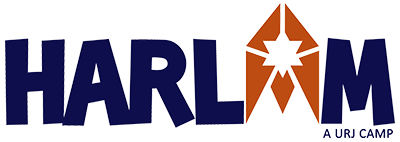Seven years ago, I was anxiously preparing to send my eight-year-old son, Noah, off to Camp Harlam for his first sleep-away camp experience. Having not been raised Jewish (I currently identify as Jewish by Marriage), in an area where sleep-away camp just wasn’t a “thing,” I wasn’t quite sure what to expect. Would my son make friends? Would he, a notoriously picky eater, have enough to eat? Did I pack enough underwear? As it turned out, my worries were all for naught. He loved it! He made friends. He ate. He didn’t run out of underwear. I could see him smiling when I stalked the daily camp photographs. He left his 10-day intro session prepared to come for the full three and a half week session the following summer.
Although I was thrilled for Noah, I also felt a pang of sadness. My older son, Jack, is intellectually disabled as a result of oxygen deprivation at birth. When filling out my end of summer evaluation, I offhandedly wrote a comment that Harlam was such a great experience for Noah I only wished there could be a similar camp experience for Jack. That comment caught the attention of Lori Zlotoff, Camp Harlam’s Inclusion Coordinator. By Hanukkah of that year, Lori had come to our home, outside of DC, to meet us and discuss the possibility of Jack attending Harlam. The rest, as they say, is history. Jack attended Camp Harlam the following summer and has been there every summer since. The boys’ younger sister, Lily, joined them at camp 4 years ago.
Camp Harlam has given our whole family so much. Noah has developed confidence. Lily has gained perspective and self-awareness. And Jack—well, Jack has gained so much more.
I recently saw a meme which shows the difference between exclusion, segregation, integration, and inclusion. At school, Jack is integrated, but not included. He stays with the kids, who like him, are not able to access the general education curriculum. He has lunch with the rest of the school population but remains separated with his group. His classes are separate. He is in a regular high school with neurotypical kids, but he is treated differently—he is part of the community, but he is separate. I understand the necessity of this in an educational setting. I understand it, but it hurts my heart.
At Harlam, though, things are different–at Harlam, Jack is included! When he is at Harlam, he somehow fits. The staff and other campers have been amazing to him. I’ve seen video of him right in the middle of activities. Dancing, singing, cheering. When we arrive to pick Jack up at the end of the summer, he hugs everyone. Everyone says good-bye and poses for pictures with him. Jack says at Camp Harlam, he is “famous.” Friends from camp have reached out to him during the school year. Jack starts talking about camp, pretty much nonstop starting in January. I won’t even tell you the words he used when Covid took camp away from him last year. Harlam has given Jack what he has missed throughout the year—a sense of belonging. And sooo many friends. As a mother, I just cannot express the profound gratitude I have that Harlam was willing to take a chance on Jack all those years ago.
Harlam has given us so much, that is true, but I like to think Jack has given back to the camp community he loves so much. As the mother of two children without disabilities, I have often discussed how much they have learned by having a brother with a disability. They have learned patience. They have learned compassion. They have learned understanding.
Jack told me recently that his bunkmates will often tuck him in at night. How sweet is that? Teenage boys taking care of one of their own who needs a little help. I like to think Jack teaches us all a little something about kindness and compassion.
When we include those that are different from ourselves, we make our whole community stronger. To help achieve that end, I am proudly serving on Camp Harlam’s Diversity, Equity, and Inclusion (“DEI”) Committee. The committee is made up of staff, campers, camp parents, and clergy. We have met in a large group and in subgroups. We’ve been brainstorming ideas and putting into effect ideas that will make Harlam a more inclusive space. The work we are doing is important not only for children like my son, but to every camper. Our goal is that everyone feels safe, welcome, valued, and included while they are at camp. When someone feels excluded because of their physical or cognitive ability, their race, their sexuality, their gender identity, or any other classification, the effect is the same—a weakened camp community. By appreciating and honoring our differences, we are respecting Jewish values: V’ahavta L’reiacha Kamocha (loving thy neighbor as yourself), kavod (respect), B’tzelem Elohim (we are all created in God’s image), and Al Tifrosh Min Hatisbur (Solidarity—be an ally and a friend). An inclusive community is a stronger community.
